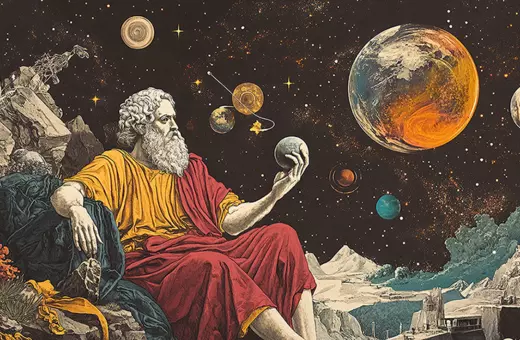Rationality leads to better choices in our lives and is the ultimate driver of moral progress claimed famous author and cognitive psychologist Steven Pinker. Yet many, including groundbreaking advertising executive and public intellectual Rory Sutherland, disagree. Sutherland was interviewed by the IAI to discuss his views on the failures of rationality, science, and the need to embrace irrationality and magic in our decision making.
You had an exchange a couple of years ago about the topic of rationality with Steven Pinker. Pinker wrote a book, ‘Rationality’, arguing that we need more rationality, and that its adoption would lead to better outcomes. You took issue with some of the conclusions that he reached. Why?
I think we have all been indoctrinated in some ways by high school science, in particular the hard sciences, to believe that there's an absolutely perfect correlation between the quality of reasoning that goes into a decision and the quality of outcome. I think that's simply an unsafe assumption for all kinds of reasons. It's a perfectly safe assumption in GCSE maths or physics when the opposite of a right idea is wrong. But in major questions, the opposite of a good idea may be another good idea. Furthermore, rationality probably didn’t evolve to drive human decision making. If you think about it, every other animal on the planet managed to survive and reproduce perfectly satisfactorily without a major faculty of reason. They did it simply on instinct.
The argument is that we evolved rationality as a social species to win arguments or to defend our decision making, not necessarily to inform our decision making. And if you think about it, contra Steven Pinker, there are lots of reasons why being rational may not be a good idea.
First, the information you may have is almost certainly incomplete. And therefore, by optimizing on unrepresentative information, which is almost always the case in a real world decision-making, you may hideously upweight certain quantifiable factors, and completely ignore other factors which are not unimportant, that are simply not numerically expressed at the time.
The second thing is that of course all data comes from the same place, the past. Gravity is a pretty good example. You can make fairly solid predictions based on a rational anticipation that gravity will operate in much the same way tomorrow as it did yesterday.
However, if you're dealing with something to do with human behavior, for example, or on a more extreme level, fashion, it's completely unsafe to believe that. And Aristotle, as well as other thinkers like Hayek, absolutely cautioned against what he called scientism, which is the deployment of the scientific method to solve problems in fields far removed and far less certain than those in which the scientific method was developed.
So it’s possible to be entirely rational and make bad decisions in your view?
Yes, that’s what G.K. Chesterton said. He talked about how wonderful it was to be a reasonable man, because you can find a reason for pretty much anything you care to do. And this is why I think in a way, education is making us stupid. People are finding it easier and easier, particularly on the back of very, very bad use of statistics, to justify terrible decisions.






















Join the conversation